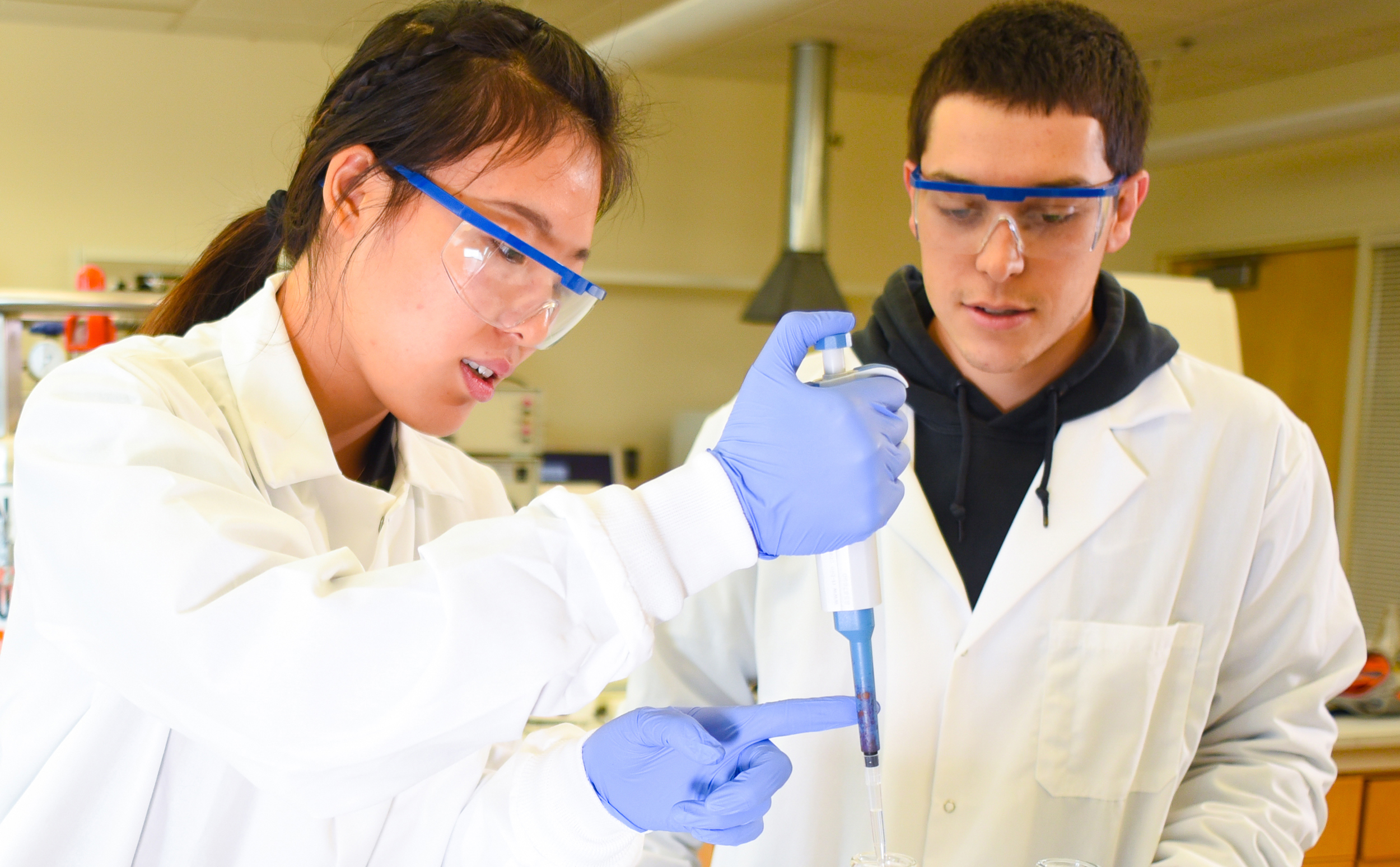April 20, 2020
Las Vegas, New Mexico – Students in the Chemistry Department at New Mexico Highlands University used an FDA-approved formula to produce hand sanitizer for the COVID-19 pandemic.
The students’ first batch of hand sanitizer went to the Highlands University Police Department April 16 and then the local jail.
“The San Miguel County Detention Center asked the university for the hand sanitizer samples, and we provided those on April 17,” said Clarence Romero, chief of Police at Highlands. “The detention center has requested more hand sanitizer and we’re working on a plan to provide more.”
The four Highlands students developed the hand sanitizer in a chemistry laboratory at the university with the oversight of David Sammeth, chair of the Chemistry Department. The Chemistry Department provided the ingredients.
“It’s really rewarding that the Chemistry Department helped solved a real-world problem, especially in our local community,” said Ciara Porras, a Highlands 2017 biology graduate who is working on the hand sanitizer project. “The university wants to help the community by distributing more hand sanitizer to those in need, especially first responders.”
Porras is the chemistry stockroom manager at Highlands. She took a number of chemistry classes at Highlands and has experience working in a private sector chemical laboratory.
“It helped being the chemistry stockroom manager because I could coordinate the professor and student involvement, and we could solve any issues. For example, Dr. Sammeth use a hydrometer in the chemistry lab to test the percent of alcohol in our initial sample of hand sanitizer to make certain it was the correct amount,” Porras said.
The three other students working on the project are graduate students in chemistry at Highlands: Evgheni Jucov, Tatiana Kornilova and Victor Glebov.
Porras said the first, and most challenging, task was to gather all the needed ingredients for the hand sanitizer. The FDA-approved formula calls for 75% isopropyl alcohol, 1.45% glycerol as a thickening agent, 0.125% hydrogen peroxide, and 22.18% water.
“The COVID-19 pandemic caused shipping delays,” Porras said.
The Highlands students wore personal protective equipment while creating the hand sanitizer, including safety goggles, masks, latex gloves and lab coats. They also kept a safe social distance.
“We worked in a sterile environment in the chemistry laboratory to keep ourselves safe and also ensure the hand sanitizer was sterile. We mixed the hand sanitizer in one-liter batches in glass beakers, using pipettes for precise measurement of the ingredients,” Porras said.
As they prepared the hand sanitizer, the students added the alcohol first and then the remaining ingredients slowly, gently stirring the formula until it was thoroughly mixed.
“Then we used sterile funnels to pour the hand sanitizer into the 4-ounce plastic bottles the university provided. We labeled each bottle with a safety sticker that included the ingredients,” Porras said.
Brian Henington is the environmental safety director at Highlands and the university’s emergency operations director during the COVID-19 pandemic.
“This hand sanitizer project was Highlands President Sam Minner’s idea and Brandon Kempner, Arts and Sciences dean, was also very supportive,” Henington said. “Dr. Minner envisioned Highlands first responders, like the police, and essential personnel getting the hand sanitizer as the top priority.
“Additional hand sanitizer will be made for Highlands employees and then be made available to the Las Vegas community as supplies allow, with an emphasis on emergency responders and essential personnel,” Henington said.
The 100% San Miguel County Community Initiative made the initial request for hand sanitizers for the county’s detention center to Highlands via the initiative’s co-directors, San Miguel County Sheriff Chris Lopez and El Centro Family Health Director Matt Probst in Las Vegas.
“This initiative works to ensure that all our families and community members have access to ten vital services that strengthen their health, safety and resilience,” said Highlands dean of students Kimberly Blea, a member of the initiative who leads the Schools Action Team. “Our action teams work with local leaders and service providers to strengthen the services we all need to be healthy and safe.”

